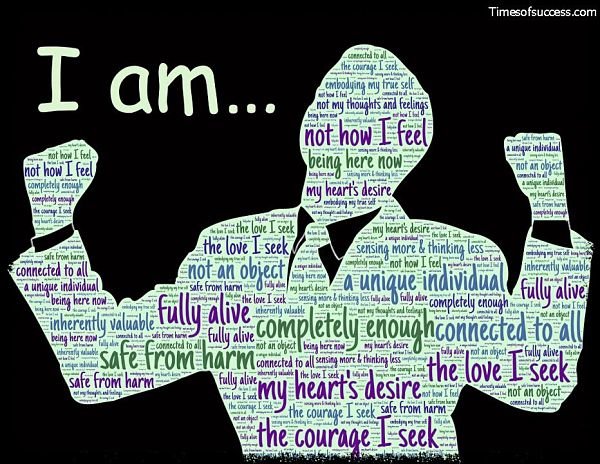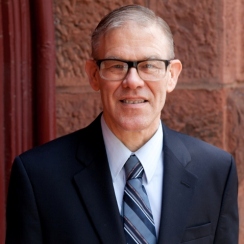Reformed theologian Carl Trueman offered an incisive lecture regarding the philosophical grounding of the sexual revolution and its cultural and legal challenges for Christians to a Faith and Law forum on September 25. The new and relatively sudden disadvantaged and disfavored situation of Christians in American society, after generations in which Christianity was held as an ideal, has been disturbing and confusing for many, and Trueman’s analysis is much needed in our day.
A new book by Trueman entitled The Rise and Triumph of the Modern Self deals with problem he discussed in his lecture. Trueman said that the sexual revolution must be understood through the “context of human selfhood.” Both the election of Donald Trump, and the riots of the summer emphasize that America is “deeply divided country, ill at ease with itself … Chaos and turmoil seem to be the order of the day.” Boundaries of nation states, sexual morality, and the family are attacked. Freedoms, particularly freedom of religion and speech, “long considered basic for the well being of society, are now being decried as tools of oppression.”
A “key factor” in the cultural revolution is “the normative notion of the self with which we operate.” Trueman means by this what “we imagine our purpose in life” to be, and what gives us happiness. Today this is self-constructed. It includes “inner convictions, our feelings, and we consequently interpret the purpose and meaning of our lives in line with this.” From this viewpoint “external authority” is a problem. The traditional viewpoint holds that one learns who one is and what one should do from “established external structures such as family, church, or nation.” But in the contemporary world, “human flourishing” is understood as “an inner sense of wellbeing.” Our proper identities are understood as self-chosen, not externally imposed.
Trueman began his historical analysis of where the idea of self-definition came from with Jean-Jacques Rousseau in the eighteenth century. Rousseau argued that human beings were “at their most authentic if they were not forced to play alien roles imposed upon them by the polite conventions of society.” He held that “society corrupts,” because it is “alienating.” Rousseau maintained that in prehistory – and in the future – “morality would rest on a spontaneous empathy with another human being, and everyone would [be] outwardly that which they felt themselves to be inwardly.” According to Rousseau, “culture and civilized society were the problem, and that rightly attuned emotions were the answer.” This idea was taken up by the Romantics, who stressed “inner psychology as constitutive of the real person.” The traditional meaning of selfhood is outwardly directed, toward what one should accomplish for God and neighbor. The psychological self focuses on whether one finds one’s life enjoyable.
After accepting self-definition as the mark of true selfhood, the modern world has attacked any idea of a universal human nature with a transcendent basis. Life and thought are held to be quite different at different times and places. Trueman pointed out that Marx claimed that human nature is entirely dependent on economic relations, while Darwin denied “human exceptionalism” by holding that human beings were simply the highest evolved animal. Nietzsche held that human life only has “the moral shape that we care to give it.” The point of life becomes only “the attaining of personal, psychological happiness,” whatever one finds it to be.
After the rejection of universal human nature, Sigmund Freud, whose general theory of human psychology is now widely contested, nevertheless had “one basic idea” that today is dominant. That is that “human beings are shaped, at a very deep level, by their sexual desires.” This, Trueman maintained, made sex “a matter of identity, and not primarily an activity.” Nevertheless, Freud held that human beings must restrain their sexual desires “in order to live together in relative peace.” According to Freud, repressed sexual energy is “diverted into cultural activities.” This can be seen as beneficial, although people will always suffer from discontent. However, this acceptance of sexual restraint was challenged by mid-twentieth century Marxist thinkers Wilhelm Reich and Herbert Marcuse. They decided that “the dismantling of traditional sexual codes is the prerequisite to revolutionizing proletarian psychology.” They saw the nuclear family as “the training ground for social conformity and obedience … The psychological self thus becomes central to the political struggle.” Important in this regard today is the pervasive culture of entertainment, which makes sex central to one’s concept of selfhood.
The threat to Christianity and freedom, Trueman said, comes from the psychologizing of the idea of the self, which makes language “central in discussion of oppression. “ Secondly, “it transforms traditional social virtues into political vices.” Historically, oppression would have been thought of as more material, i.e., not being able to find work, or being underpaid. Today, it has become more psychological, particularly in making people feel bad about themselves. Additionally, oppression can be understood as preventing people from being what they take to be their true selves. Words become “speech acts, by which we acknowledge or deny the identity of another.” Words can be “instruments of violence, because injury is conceptualized in psychological terms.” Freedom of religion (which contradicts sexual desires at many points) and freedom of speech, once “basic social goods,” now become vices. “When the psychological self is normative, speech becomes violence, and freedom of speech thus a license for violence … individual freedom, perversely, comes to require political authoritarianism.”
With religious freedom, the conflict is even sharper. Because “the revolution of the self … has placed sexual identity at the center, [it] effects a transformation of the understanding of sex. It ceases to be what human beings do and becomes that which they are.” This is devastating for Christianity, Trueman said, because behavior the Bible holds gravely sinful becomes “part of an identity which society regards as legitimate and therefore requires all its citizens to recognize for the common good.” To condemn and shun homosexual practices now becomes an attack on another person; “an act of political violence.” Both Christianity and religious conservatism in general (including orthodox Judaism and Islam), Trueman observed, now become illegitimate. “The moral imagination of contemporary society has moved private desires and behaviors which Christianity has traditionally anathematized to the center of public identity and civic belonging.” To condemn premarital sex “is to object to an illegitimate expression of a legitimate identity.” To condemn homosexual acts is to attack “a gay person’s very sense of self. That makes Christianity not simply implausible, at an intellectual level, but downright morally offensive, even politically seditious, because it seems to threaten the common good.”
Consequently, “mere tolerance of LGBTQ+ identities was never going to be sufficient. Tolerance implies, at best, legal indifference, but it allows space [for] freedom for moral disapproval.” Tolerance therefore grants legitimacy to expressions that psychologized selves “see as violence.” But psychologized identities can also require forced speech, Trueman noted, as in recent claims of advocates of Critical Race Theory that “silence is violence.” Such identities “need to be actively affirmed.” All this makes “the maintenance of Christian morality an act of social immorality, according to the tastes of the modern moral imagination.”
Trueman noted that religious freedom has never been “absolute.” Human sacrifice, for instance, has never been tolerated under the constitutional guarantee of religious freedom. Thus, when Christianity becomes “identified with psychological violence and harm” there will be pressure to set aside religious freedom, supported by much of the public. The uncontested scope of religious freedom will be radically reduced. He believes that the Bostock ruling, while narrow in its scope – restricted to employment discrimination – will necessarily spill into other areas, since it is based on the idea of protecting the psychologized self.
Trueman laid out a comprehensive, and for many people, unexpected problem for Christians in the contemporary world. Few people thirty years ago would have thought that foundational freedoms in American society would ever be attacked. Problems he sees with the psychologized self and how Christians should respond to it will be discussed in a subsequent article.






Comment by Rolf Östlund on October 16, 2020 at 5:29 am
….good article, only mistake – Truman should be “Trueman” 😉
Comment by Rick Plasterer on October 16, 2020 at 3:42 pm
Thanks so much – Rick